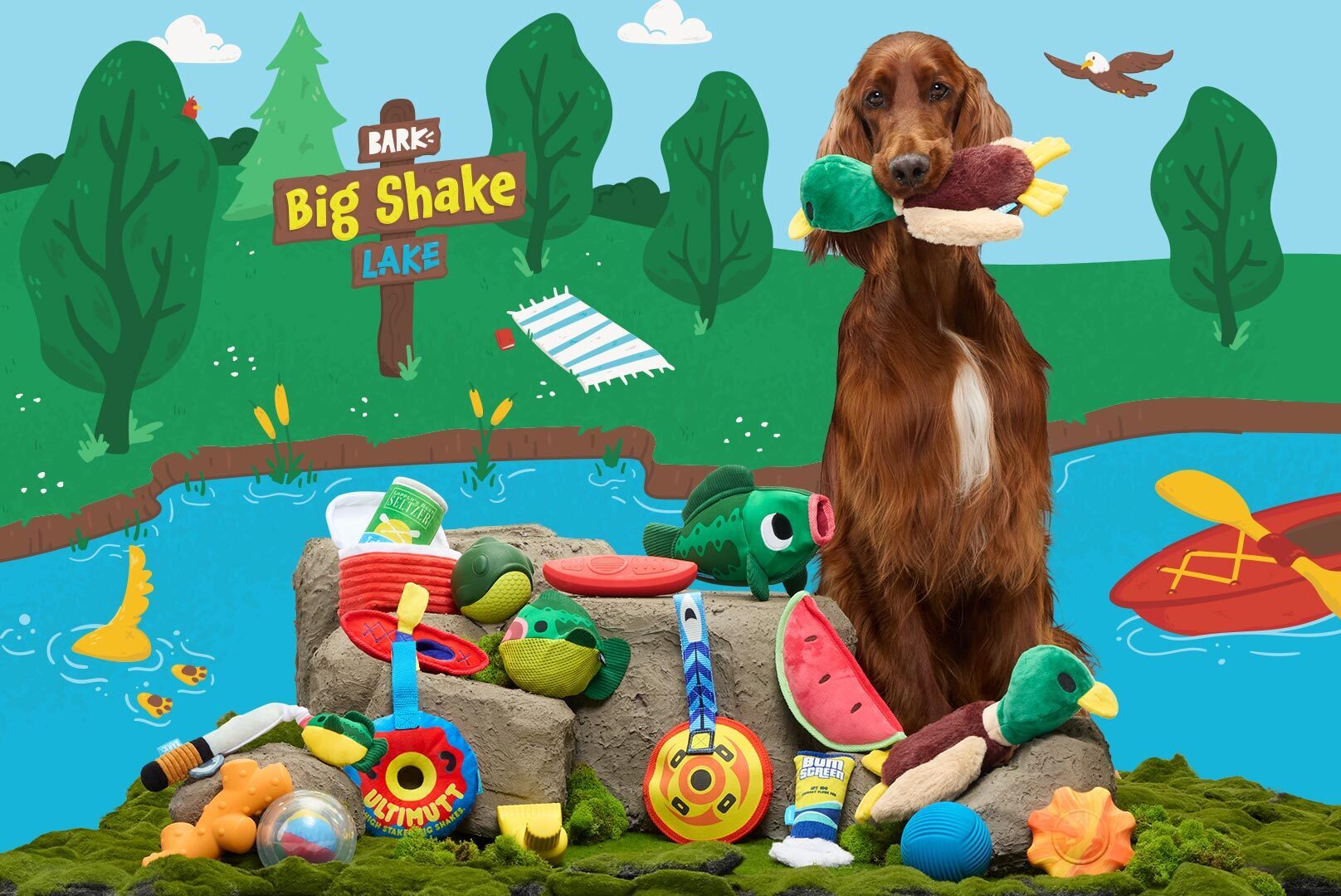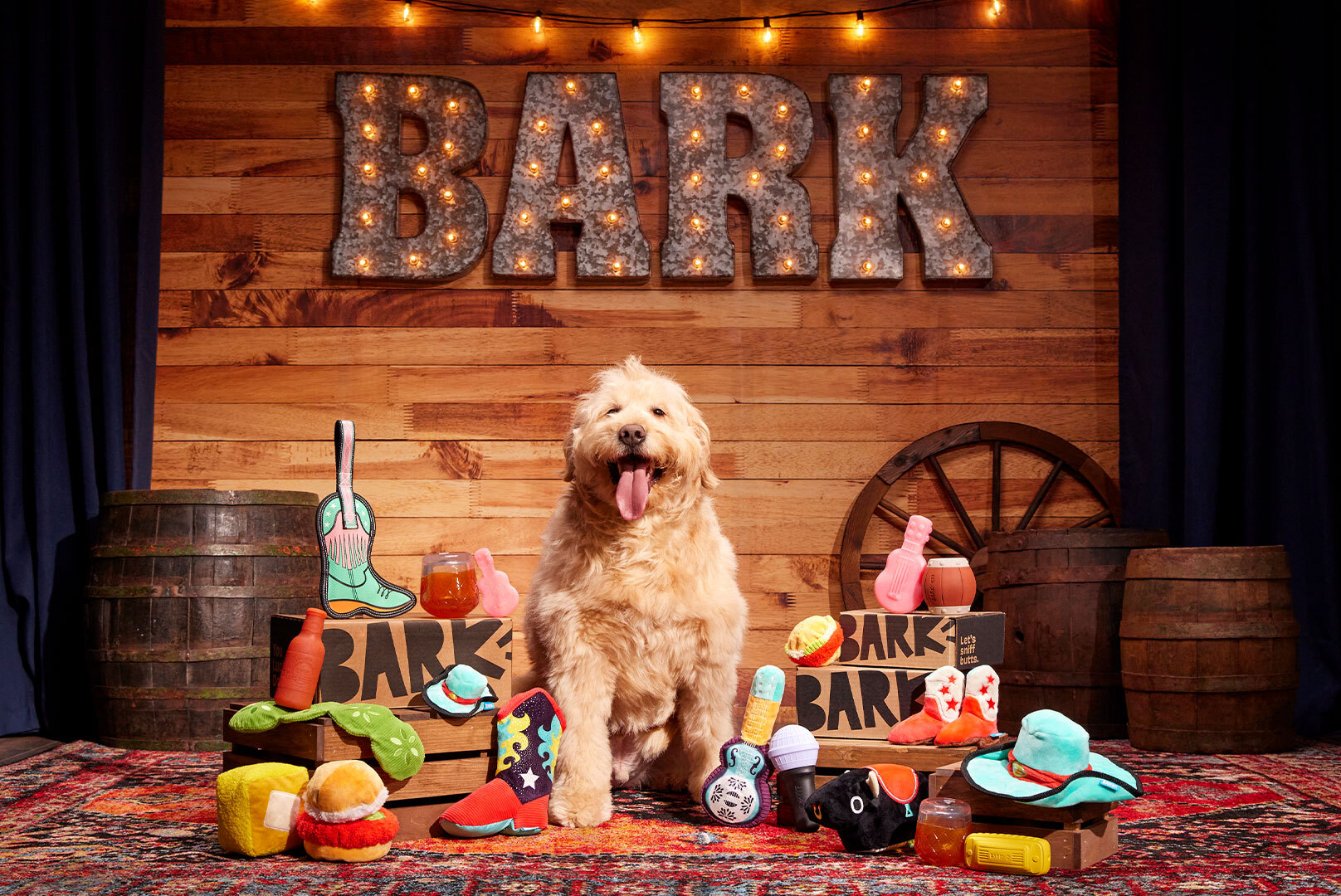With their darling “come pet me” eyes, agile frames, and profound sense of loyalty, pit bulls make for a delightful pet. Who hasn’t instantly fallen for a pit bull pup, or harbored dreams of adopting one as their family mascot?
If you’re fortunate enough to call a “velvet burrito” your sidekick, you want to do all you can to ensure they enjoy a long, healthy life—and a big part of this puzzle is having a full picture of the health concerns that commonly affect them.
Let’s jump into the most prevalent pitbull health issues these pooches encounter so that you can act fast and, when possible, take preventive measures.
From Allergies to Cardiac Disease: 6 Common Complications Pit Bulls Face
There are a ton of superlatives to bandy about when it comes to pit bulls. Super fun? Certainly. Natural protectors? No doubt. Gentle giants? Yes—despite the myths and misconceptions surrounding sweet pibbles. An utter joy to have as your best friend? 100%.
But “pit bulls,” as you might know, are not a specific breed. It’s a broad term to describe a whole bunch of pups—much in the way that “retriever” refers to Goldens and Labradors and “fetch” means both a ball and a meatball sandwich to your dog.
Here are just a Frisbee-full of dogs that fall under the name “pit bull:”
- Bull terrier
- Staffordshire bull terrier
- American pit bull terrier
- American bullies
- American bulldog
Despite the nuances among the different types, pit bulls–alas–have these complications in common:1
- Allergies
- Cataracts
- Hip dysplasia
- Hyperthyroidism
- Kneecap dislocation
- Heart disease
Let’s take a look at each.
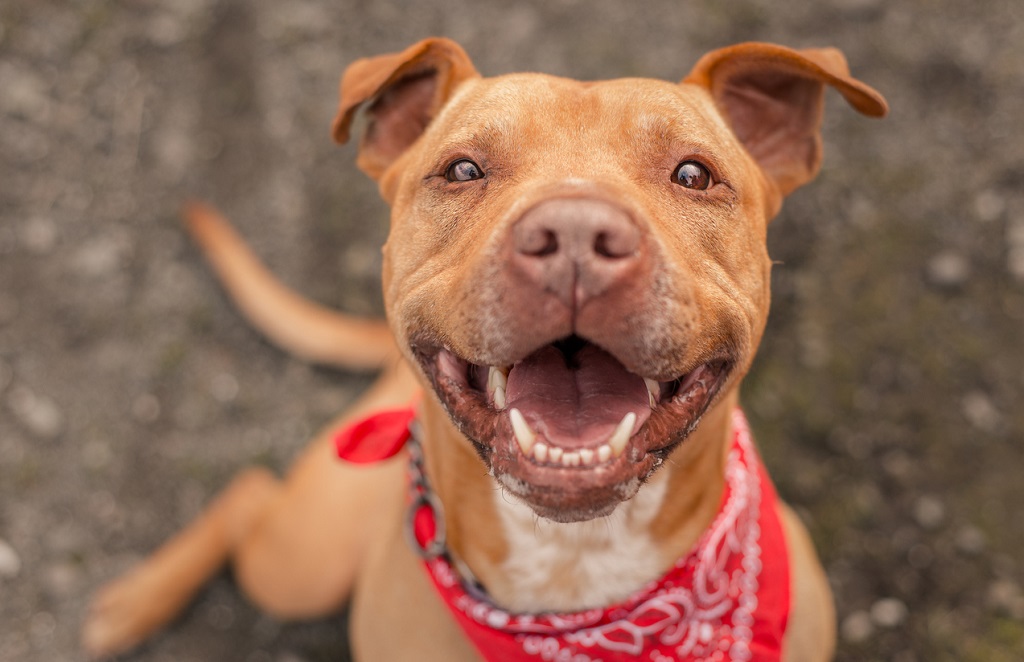

#1 Allergies
Allergies are ubiquitous in pit bulls, in part because their short fur makes them susceptible to allergens in the air.2 Others may be allergic to flea bites.3 Although it’s less common, pit bulls are also vulnerable to food sensitivities.4
Symptoms to watch for include:5
- Rashes
- Hives
- Red and/or itchy skin
- Lots of face rubbing
- Tummy issues
It’s rare, but some pit bulls may develop persistent ear infections, rhinitis (or inflammation in the nose), and asthma.
The route of treatment will be based on your vet’s analysis. The sharp folks who penned the Merck Vet Manual state that immunotherapy is frequently used to treat environmental allergies.4 As for food allergies? You may have to put your wigglebutt monster on a strict food-elimination diet.
Allergies usually start to present in pups between the first six months and three years of their life, which might just give you the chance to tackle this issue when they’re young.
Wondering how you can prevent these itchy symptoms? In addition to feeding your pit bull a nutrient-rich, whole-food diet, avoid places–such as certain parks–that are notorious for fleas.
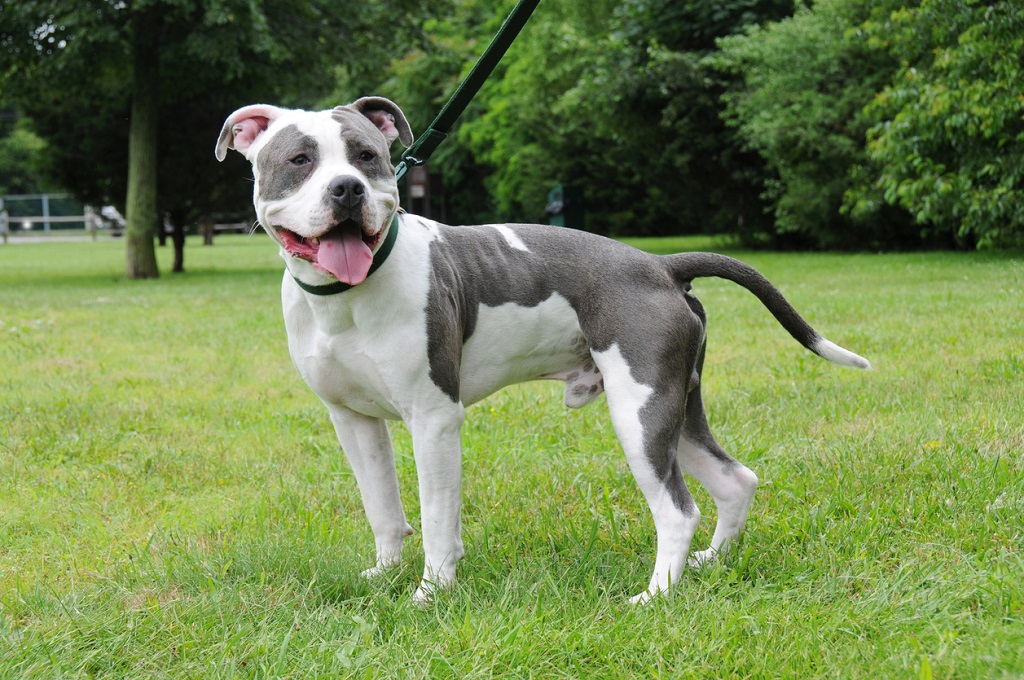

#2 Cataracts
Pit bulls may have some of the most adorable eyes among dog “breeds,” but their peeps are also prone to developing cataracts.
What are cataracts, exactly?
Well, the lens of an eye in mammals is composed of proteins. These proteins can bundle and clump together, which gives the lens a thick, cloudy look and causes impaired or blurry vision.5
The reasons for cataracts in pit bulls are varied, from a genetic predisposition to the disease and injuries to nutritional deficiencies and infections.
If your pup begins to develop cataracts, some signs you might notice are:
- Clumsiness (as opposed to your pit bull’s innate goofiness)
- Opacity
Cataracts are a progressive disorder, and your pit’s treatment will depend on the stage of cataracts they have. Your vet may recommend daily medicated eye drops. This won’t cure the disease, but it might beg off the development of glaucoma—a degenerative eye disease that can result in blindness.6 The most effective way to treat cataracts is with surgery, but this costs a pretty penny–generally around $3,000.
If your pit bull’s cataracts are hereditary, there’s very little you can do to prevent them. Routine exams, though, can help you stay on top of their eye health.
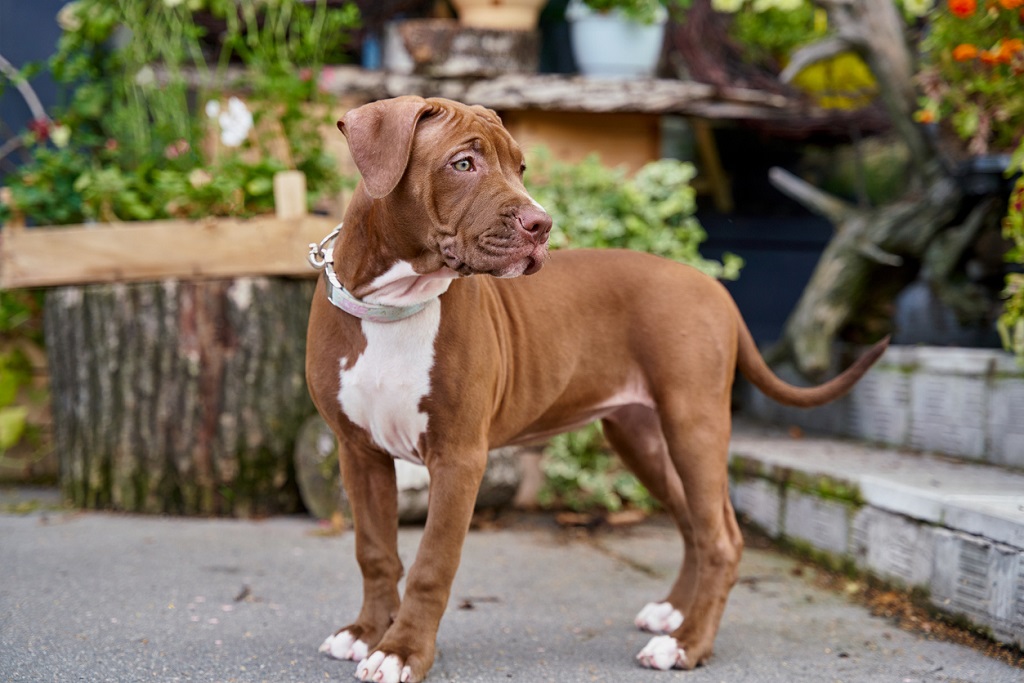

#3 Hip Dysplasia
Strong and ever-energetic pit bulls may believe they’re invincible and persuade you to think the same. However, pit bulls are vulnerable to bone disorders, including hip dysplasia.1
Commonly caused by genetic factors, hip dysplasia can dampen your pit bull’s enthusiasm and be downright painful. Why? Because the hip loosens from the joint that should be keeping it in place, so instead of the bone and joint working in harmony—gliding together and enabling your pit bull to run, jump, and play—they jam against each other. (Ouch, right?) Over time, hip dysplasia can lead to impaired mobility and arthritis.
Hip dysplasia symptoms can include:
- Hopping when running
- Lameness
- Stiffness
- Cracking and popping noises when they move
- Hesitating before heights
- Muscle atrophy in their hind legs and pronounced muscles in their shoulders and arms
The severity of your pit bull’s condition will determine the form of treatment your vet recommends.
Sometimes, simple lifestyle changes—such as weight management, low-impact exercise, and supplements—will temper your pooch’s aches.
Other times, your pup may need to undergo surgery.7 Surgical options include a femoral head ostectomy (FHO), a double or triple pelvic osteotomy (DPO/TPO), or a total hip replacement (THR), which is considered the most successful form of hip dysplasia treatment.
One of the biggest contributing factors to hip dysplasia in large dogs like the pit bull, German Shepherd, Bull Terriers, and Bullmastiff is improper nutrition–particularly when the is a puppy. Feeding your pit bull puppy precisely what he needs can help prevent excessive and abnormal growth.7 Be sure to give your little wiggles the Goldilocks of exercise, too–neither too little nor too much.
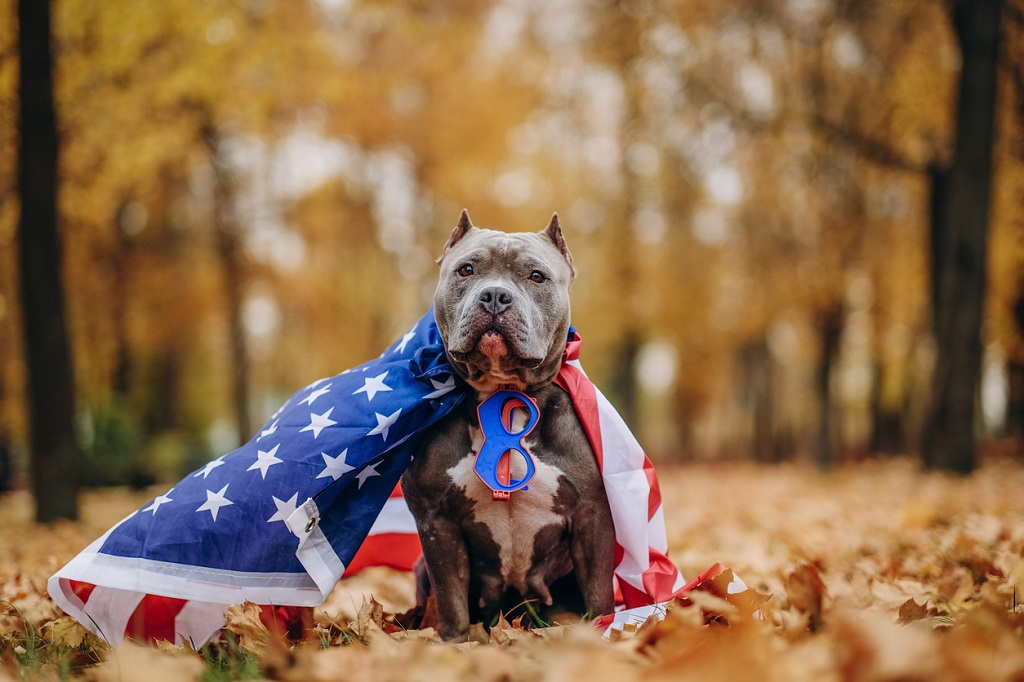

#4 Hypothyroidism
We might not give a whole lot of thought to thyroids—in dogs and in ourselves—unless a complication arises, but these glands play a part in a bevy of physical functions. Chief among them? Metabolism.
In the simplest of terms, hypothyroidism is a disease of the endocrine system in which not enough thyroid hormones are produced. Generally, this is caused by inflammation or degeneration (aka, aging).8 If left untreated, your pit bull may encounter a litany of health complications, including reduced immunity and neuromuscular effects like seizures.
Hypothyroidism in dogs can present as:
- Unexplained weight gain–meaning your pup is packing on pounds even if her appetite is lacking
- Skin infections and scaling
- Less energy and vitality, or the canine equivalent to a lazy teenager
- Thinning, brittle fur
- Cold body temperature and a desire to be near heat
If your pit bull is diagnosed with hypothyroidism, they will likely need to take a medication called levothyroxine.9 The good news? The medication is effective and normally well-tolerated.
Avoiding highly processed foods is one of your best forms of defense against hypothyroidism.
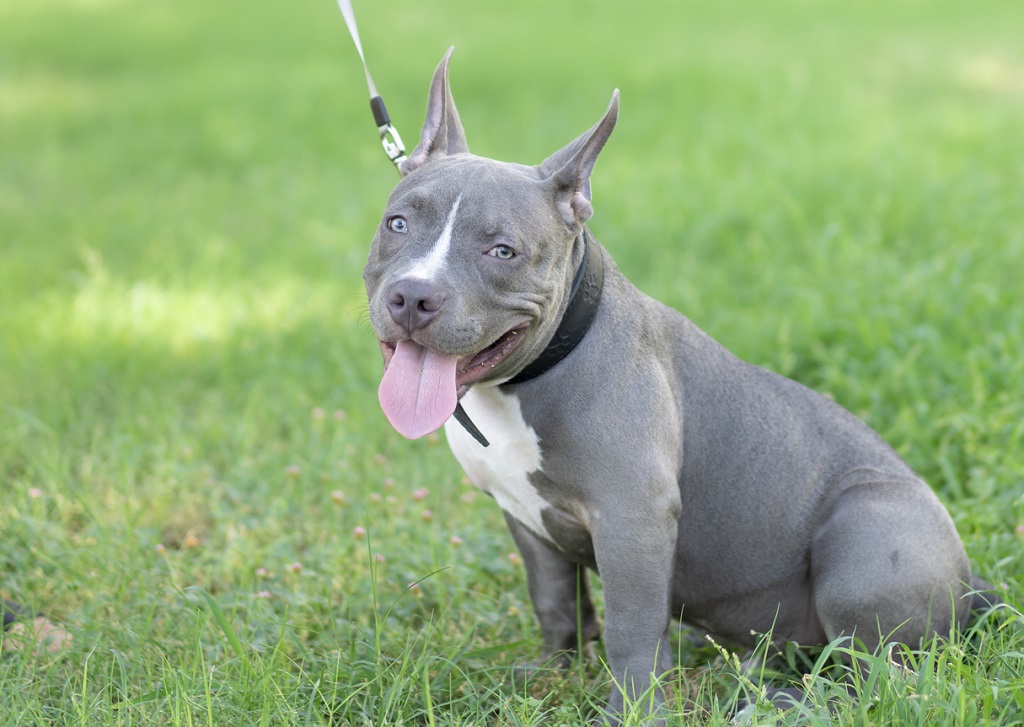

#5 Kneecap Dislocation
Otherwise known as luxating patella, kneecap dislocations are one of the leading pitbull health issues. With this condition, your pit bull’s kneecap will shift, typically inward.10 Acute knee dislocations may be painful for your pup, but milder forms of the orthopedic condition don’t cause significant discomfort (well, at least so far as our pups tell us).
Again, genetics are the most common cause of a dislocated knee, but injuries and traumas can cause your pit bull’s kneecap to budge in the wrong direction. Another contributing factor? Obesity.
Symptoms of this condition can include:
- Limping
- Snap-crackle-pop sounds when your pooch bends his knees
- A bow-legged appearance
- Crouched back
- Favoring the other three, unaffected legs
Fortunately, lifestyle alterations can make a huge difference. Weight loss might be recommended, as well as “crate rest” and exercise restriction. In more severe cases, your vet may recommend surgery, which can hinder the dislocation from occurring again by roughly 64%.10
Weight management is one of the keys to preventing your pit bull’s knee from popping out of place. To this end, give your pit-o-potamus a well-balanced diet and ensure they receive sufficient exercise. They might also benefit from a supplement that organically promotes joint health. Monitoring your dog’s overall health and ensuring they receive routine checkups is also a surefire way to keep them going strong.
#6 Heart Disease
With dogs as full of love as pit bulls, it might be hard to imagine anything going wrong with their hearts. Alas, pit bulls are also vulnerable to having heart disease, both acquired and congenital (meaning, they’re born with it).1
Symptoms of heart issues in dogs can show up as:11
- Coughing
- Lethargy
- Seclusion
- Behavioral changes, such as no longer wanting to play and sleeping more often
- Weight gain or loss
- Curbed appetite
- Swelling
Your vet may recommend medication to treat your pitty’s heart condition. A few of the most commonly prescribed meds are diuretics and digoxin.12
If your pit bull’s heart condition is hereditary, again, there isn’t much you can do to stop it. Otherwise, the best way to ward off heart disease? You guessed it: Routine care, proper nutrition, exercise, and a healthy lifestyle.
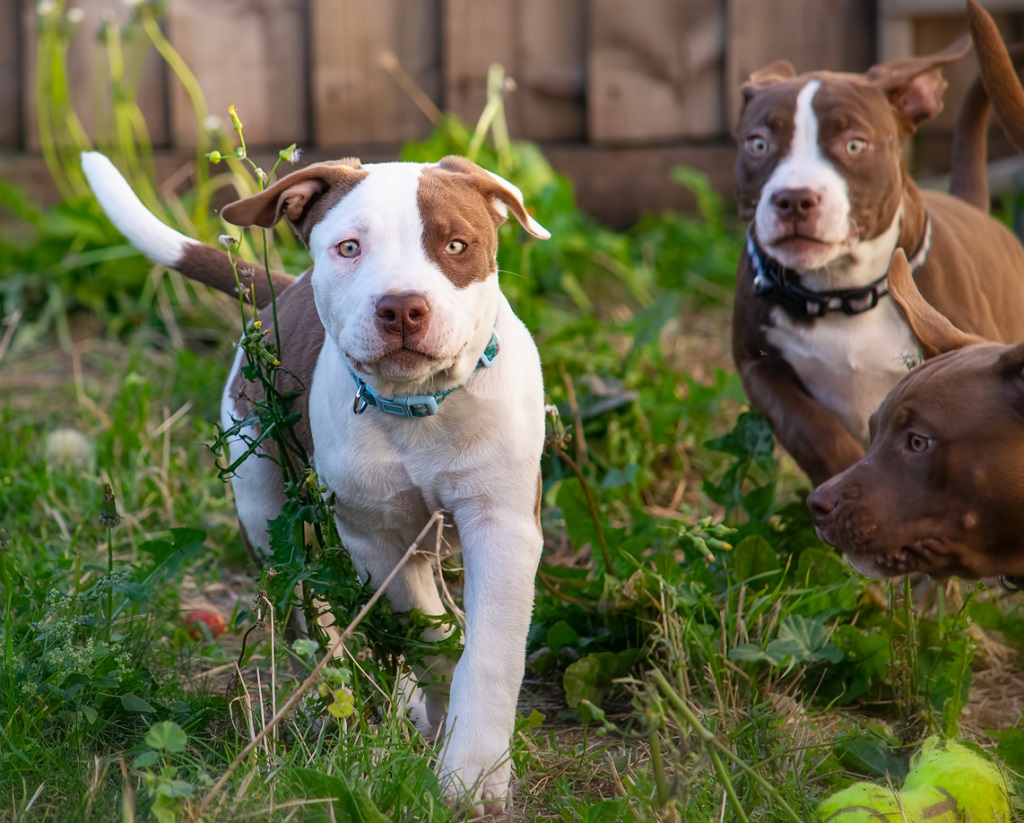

Let Bark Put More Spark in Your Pit Bull’s Life
If you’ve noticed one common theme here—other than the fact that pit bulls are positively irresistible—it’s probably this: Nutrition is crucial for the health and longevity of your beloved pooch.
BARK can make that happen in a pinch.
Our Kibble of the Sea was crafted with your pit bull in mind. The awesome combination of Alaskan Pollock and brown rice is optimal for a pit bull’s voracious appetite. It’s also chock full of nutrients that promote joint health, digestion, and overall wellness. Give it a try today—and check out our pit bull-specific supplements while you’re at it.
Sources:
- Pet MD. American pit bull terrier. https://www.petmd.com/dog/breeds/c_dg_american_pit_bull_terrier
- Emergency Pets USA. Everything you need to know about pit bull skin allergies. https://emergencyvetsusa.com/pit-bull-skin-allergies-issues/
- American Kennel Club. Dog allergies: symptoms and treatments. https://www.akc.org/expert-advice/health/dog-allergies-symptoms-treatment/
- Merck Vet Manual. Allergies in dogs. https://www.merckvetmanual.com/dog-owners/skin-disorders-of-dogs/allergies-in-dogs
- Veterinarians.org. Cataracts in dogs: stages, causes, treatments, and more. https://www.veterinarians.org/cataracts-in-dogs/
- PDSA. Glaucoma in dogs. https://www.pdsa.org.uk/pet-help-and-advice/pet-health-hub/conditions/glaucoma-in-dogs
- American Kennel Club. Hip dysplasia in dogs. https://www.akc.org/expert-advice/health/hip-dysplasia-in-dogs/
- Ped MD. Hypothyroidism in dogs. https://www.petmd.com/dog/conditions/endocrine/c_dg_hypothyroidism
- FDA. Hypothyroidism in dogs–these are the FDA approved drugs to treat it. https://www.fda.gov/animal-veterinary/animal-health-literacy/hypothyroidism-dogs-there-are-fda-approved-drugs-treat-it
- Pet MD. Luxating patella in dogs (knee dislocation): symptoms, causes, treatment, and fags. https://www.petmd.com/dog/conditions/musculoskeletal/c_multi_patellar_luxation
- Pet MD. Top 10 signs of heart disease in dogs. https://www.petmd.com/dog/slideshows/general_health/top-ten-signs-of-heart-disease-in-dogs
- Merck Vet Manual. Treatment of cardiovascular disease in dogs. https://www.merckvetmanual.com/dog-owners/heart-and-blood-vessel-disorders-of-dogs/treatment-of-cardiovascular-disease-in-dogs
- Pet MD. Dog allergies signs and treatment: how to tell if your dog has allergies. https://www.petmd.com/dog/general-health/food-allergies-vs-seasonal-allergies-dogs
- Veterinarians.org. Hypothyroidism in dogs: a brief guide. https://www.veterinarians.org/hypothyroidism-in-dogs



